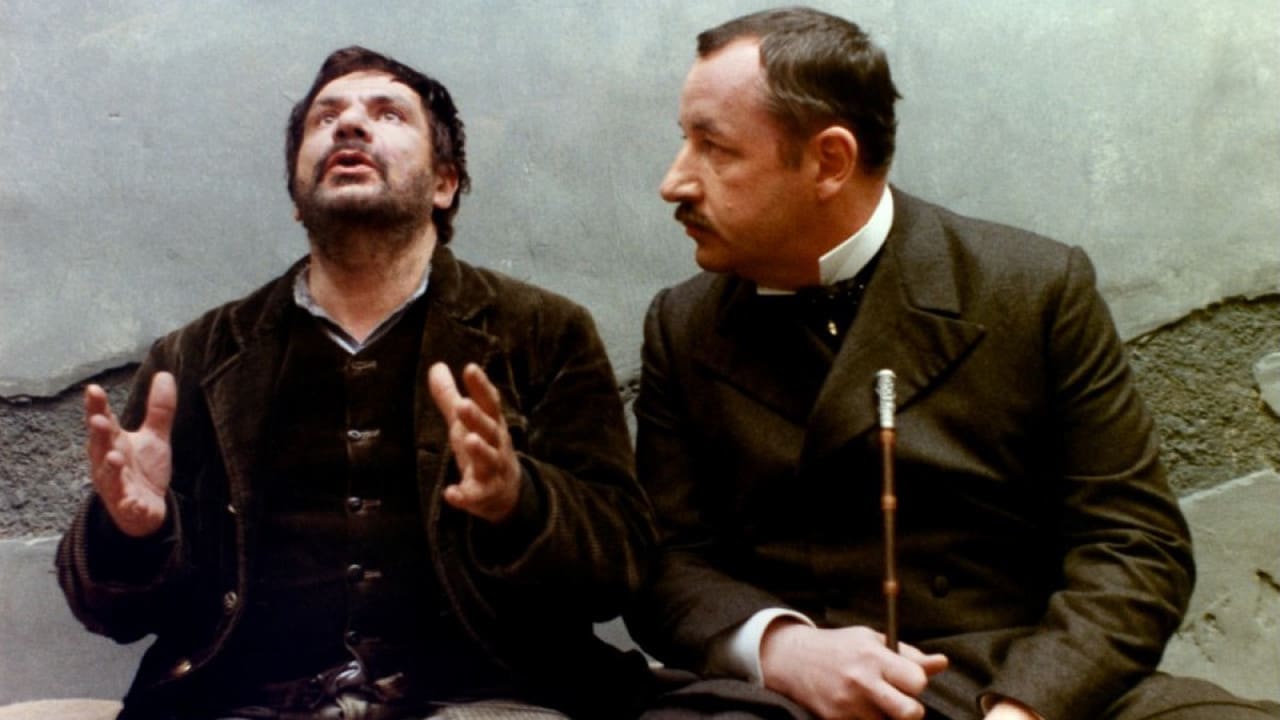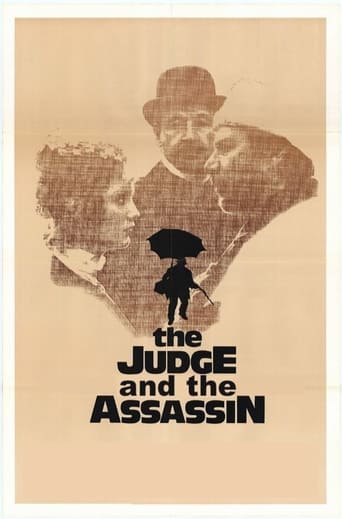Nonureva
Really Surprised!
Konterr
Brilliant and touching
Kailansorac
Clever, believable, and super fun to watch. It totally has replay value.
Wyatt
There's no way I can possibly love it entirely but I just think its ridiculously bad, but enjoyable at the same time.
Cristi_Ciopron
The leads are both very good—Noiret being perhaps the best of the two …--yet without having much stuff to play. The two central characters are poorly written, with not much intrinsic interest. I expected—I must confess—a thrilling hunt game—a wild hunt, in an ever accelerating pace; a savage confrontation of energies—or, at least, a game of subtlety, intelligence, wit and cunning. Yet, the film is but a police procedural, too well performed by Noiret and Galabru; the truth is that this crap director did not deserve such actors. The characters remain unexplained, unexplored and indifferent to the viewer, despite the prodigious art of Galabru and Noiret. While Noiret elegantly, impassibly exercised his mastery, Galabru looked very willing to invest, to create, to find his character's life ….The director is inept, the script is crap. THE JUDGE AND THE ASSASSIN has nor the excitement of a larger—than—life manhunt ,neither that of an abundant deploy of intelligence, shrewdness, intuition, psychology. The whole movie is wrong—wrong from the concept. It amounts to no more than a police procedural, without excitement, atmosphere or suspense. It also ends on a dignified crap note of social vindication. The viewer has the feeling, the perception that everything in this movie was irrelevant, insipid. No excitement, of whatever kind; no life, that is,in it,and no valid creation. Only a pretentious leftist police procedural. The actors are first—hand, Noiret reopens the drawer with ambiguous, eerie characters (his character here is not without reminding the one in LA GRANDE BOUFFE);yet the movie does not find its tone—that is, the director does not find the film's tone.
dbdumonteil
And with him,the French cinema regained all that it had lost with the nouvelle vague:magnificent cinematography(I urge everybody to see this film in a movie theater),elaborate screenplays,Clouzot's Renoir's and Duvivier's bite ,all that made once the French cinema great."Le juge et l'assassin " is his sophomore effort ,after "l'horloger de Saint- Paul",but it was one which firmly and finally placed Tavernier among the greatest,most ambitious artists of the French cinema.First of all,he did with Michel Galabru -who used to play in mediocre comedies - what Claude Chabrol did with Jean Yanne ("le boucher" "que la bete meure") :this actor is playing his lifetime part,revealing a talent which one would never expect from him.France,end of the nineteenth century;anti-Semitism is rampant :twice ,a poster appears :"La croix (the cross): a paper against the Jews as no one can";Brialy's character:"we all need an outlet for our bad deeds:I have chosen the Jews,because it's safe";Renée Faure,the judge's good mother,serving the "mercy bouillon" to the Poor,provided that they sign a petition against captain Dreyfus .After the 1870 war,France was humiliated and the song a buck officer sings speaks volumes about the loss of Alsace and Lorraine.A world which Zola -whose books were burned- depicted ,where 2,500 children died in the coal mines... The killer killed 12 of them..This is not a serial killer who comes out of the blue.Tavernier takes time to describe his mind :he was bitten by a rabid dog (or more like as one scene in a church tells us ,he was raped by a priest),he served in the army but was discharged,and mainly the girl he loved did not want him anymore.He tried to kill her and to take his own life but he failed twice,and in the asylum,they wrecked his brain.Although he is a killer,he is actually a political prisoner:he realized that as far his crimes were concerned ,the blame had to be put on a criminal society:in a remarkable scene ,the judge's mother reads the reports concerning the awful crimes as if she 's reading the tittle-tattle of the town.The serial killer identifies himself with Jesus and Joan of Arc ...In direct contrast to hîm,we have the judge :admirably portrayed by Tavernier's favourite actor ,Philippe Noiret,he epitomizes the bourgeoisie,the man who wants to keep the world as it is;this is a very complex opaque character:nearing 50,he stills lives with his mother,and he's got nasty habits (see the scene when he buggers Isabelle Huppert).There are a lot of things to say about "le juge et l'assassin":the film successfully recreates the atmosphere of the period,not only by its hints at Dreyfus,at a country which is bent on revenge ,at a Church which feels its power slip away (the priest thundering against "school without God" ,about 10 years after Jules Ferry instituted secular education,and about 10 years before the separation of the Church and the State in France).But it even recreates it with its original songs ,which is quite a feat.We really feel we are in the time machine,and that's the main reason why Tavernier's movie is so precious:no one can find echoes of the seventies in France,which would have dated and marred the film.Even if the socialists appear at the end of the movie,there's no connection with their impending coming in the eighties.A masterpiece ,Tavernier's best film along with "la vie et rien d'autre".
roittman
Michel Galabru got the highest french award for his role in this movie, the "Cesar du meilleur acteur". Galabru became then one of the greatest actor in France.Either in comedy or in tragedy (see "Le gendarme" and "L'été meurtrier".
mifunesamurai
A French provincial town in the late 1890's where a Judge attempts to advance his political power by trying to prove that a soldier was not insane at the time of committing murder, which means soilder gets the guillotine and not the mad house. A movie that is more about the social turmoil in France.

